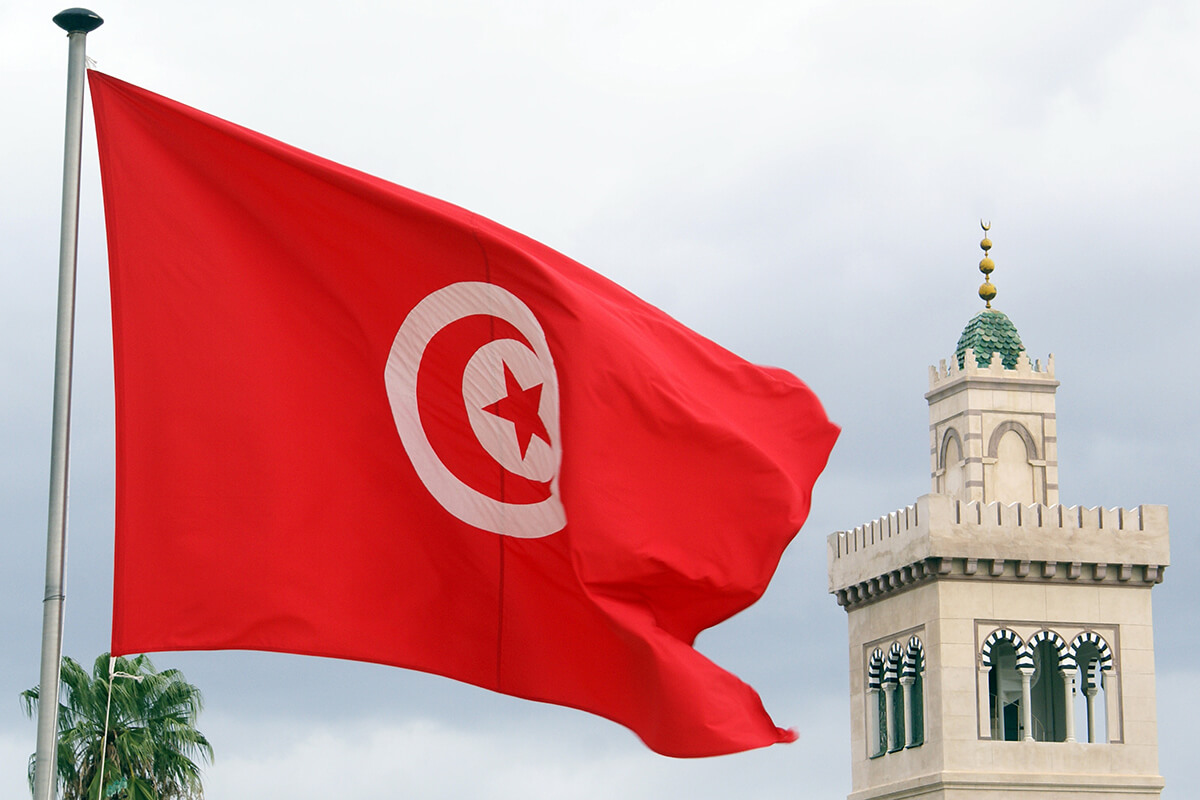
In Algeria, mass demonstrations and a fierce youth movement have once again led to the downfall of a dictator and captured the hearts and minds of the free world. But now that President Abdelaziz Bouteflika has stepped down and an interim president has been named is his place, the question remains: what next? For the hundreds of thousands of young protestors, Bouteflika’s resignation is an important victory but only a small step forward. One only need to look next door to Tunisia, where a revolution led by youth has failed to become a revolution for youth.
Recent public opinion research conducted by the International Republican Institute (IRI) in Tunisia reveals that Tunisia is still waiting for its youth revolution over eight years after the ousting of longtime president Zine El Abidine Ben Ali in January 2011. Data points to a large and growing trust deficit between young citizens and their government, led by 92-year-old President Beji Caid Essebsi, the third oldest head of state in the world. And while Essebsi has overseen important strides in the political transition, including the country’s first genuine municipal council elections in May of last year, these elections revealed a growing disillusionment with Tunisia’s democratic experiment. 77 percent of youth, defined as those aged 18 – 34, stated they were not registered to vote in the municipal elections. For those who were registered, only 26 percent said that they voted, far below the national average.
Poll results also show that the majority of youth believe that elections do not represent the will of the people and nearly half of youth respondents stated that they do not believe ordinary people can affect government decision-making, a view significantly more pessimistic than that of adults and seniors. Even more striking, 65 percent of youth are dissatisfied with the way democracy is developing in Tunisia and 38 percent of youth said that they do not believe that democracy is the best possible form of government. Youth dissatisfaction with democracy is a troubling indicator of potential radicalization in the country. Tunisia has been one of the highest contributors to foreign fighters in Iraq and Syria with nearly 30,000 Tunisians attempting to join extremist groups and 2,900 successfully doing so.
Reports suggest that many youths are spurred to radicalize by a lack of employment opportunities and growing disillusionment with post-revolution politics. Tunisia’s political leaders must respond to citizen demands and address political and economic concerns before mounting political malaise pushes young people to express their anger and frustration through violence. Already, youth show a preference for protest rather than electoral participation with 38 percent of youth citing protest and 34 percent of youth citing voting as the best way for ordinary citizens to influence decisions. Compared to adults and seniors, youth are respectively six percent and 14 percent more likely to believe protest is the best way for ordinary citizens to influence decisions.
While there is a strong demand to see more youth participation in the political sphere, young people throughout the country prove reluctant to engage. Sixty percent of Tunisians polled report that they would be more likely to vote for a candidate aged 35 years old or younger, and strong majorities of Tunisians across all demographics believe there should be more youth in politics, with 76 percent saying that electing more youth to government would be positive. However, in conversations with people in rural parts of the country, youth express resentment towards political parties and established politicians, stating that the political process is corrupted and politicians are thieves and liars. Seventy-two percent of youth said they are unlikely to run for office before age 35 and only 14 percent expressed an interest in joining a political party. Eight years after millions of young people in Tunisia voiced their political aspirations and demanded a say in their future, they feel the political process has yet to become an avenue where they can make their voices heard. Will the same be true of Algeria?
Almost 40 percent of youth believe the best way to affect change is through protests, a forewarning of more unrest to come. Political leaders and parties need to do more to engage and communicate directly with youth; they need to rebuild trust with their constituencies; and they need to revisit party platforms so to provide real solutions for addressing the nation’s problems. To do so, political parties will need to focus on rebuilding their internal structures and expanding their nationwide presence through local offices. This will aid in the development of informed, citizen-centered policies that speak to youth concerns. Above all else, politicians need to convince youth that the best way to take the future back into their own hands is through polls, not through protests.
How Tunisia’s political class handles this year’s parliamentary and presidential elections will prove a turning point in the country’s democratic trajectory. What’s more, Tunisia’s case should serve as a harbinger for Algeria’s young people as they too seek change. It’s too early to tell if Algeria’s political system will see real reform, but as protestors demand a road map towards democratization they should keep in mind that democracy is more than just its processes. Democracy’s legitimacy is based on participation of the people, manifested not only through voting but active engagement in the public sphere. Youth in Tunisia and Algeria need to be empowered to play a pivotal role in the forces that govern their lives and shape their future. If not, unrest in both countries will only continue to grow.
Top